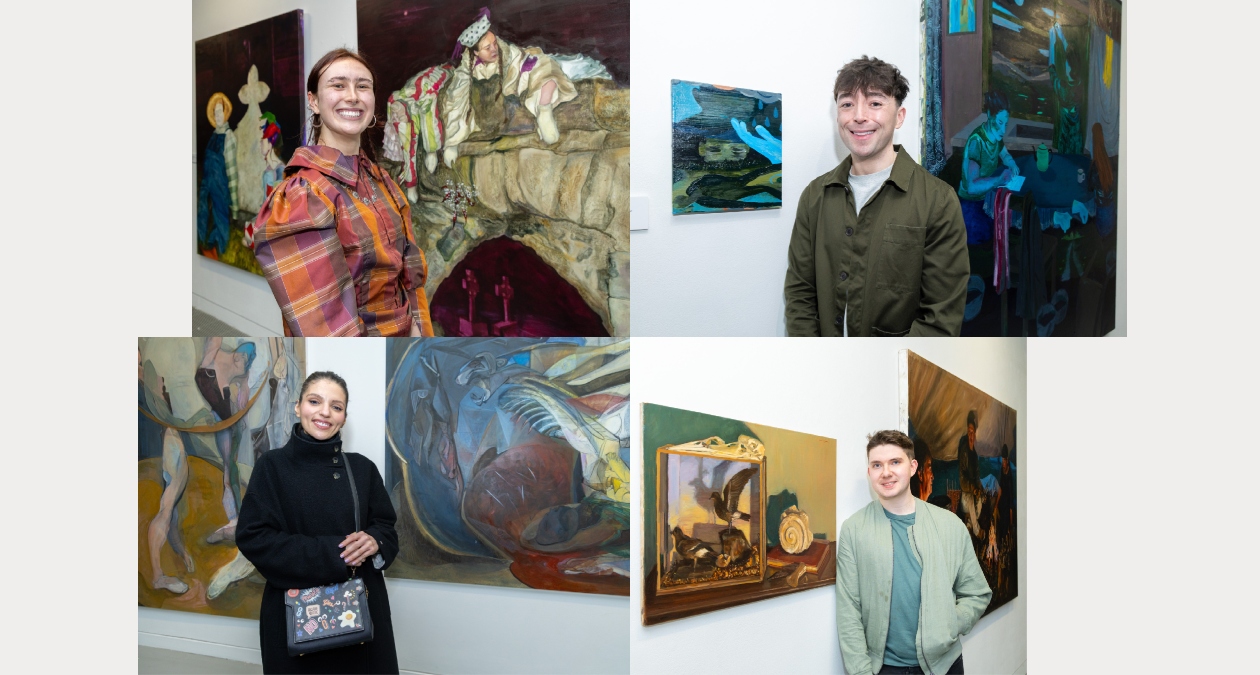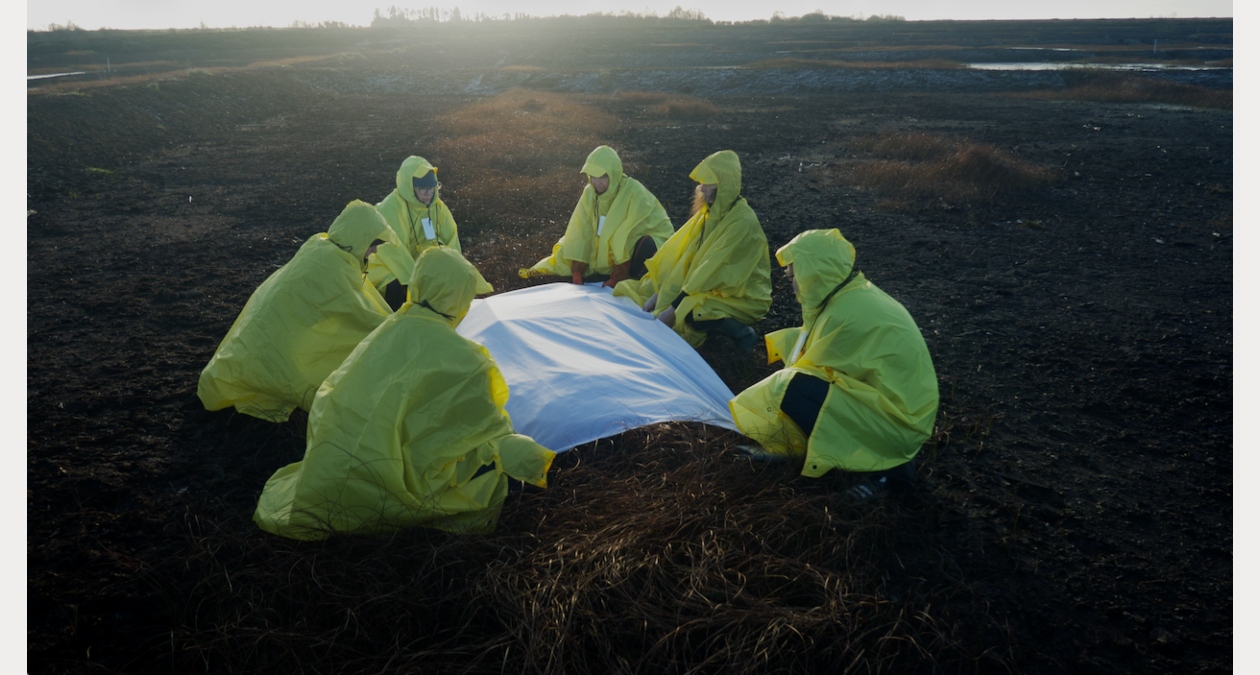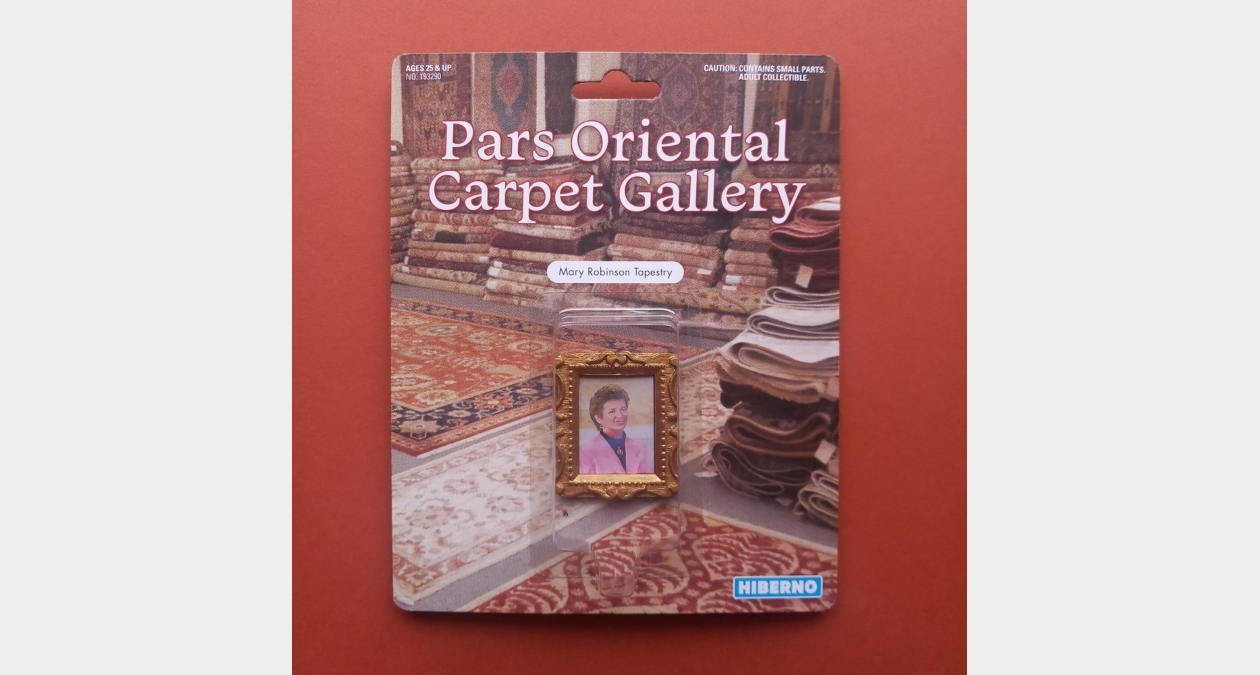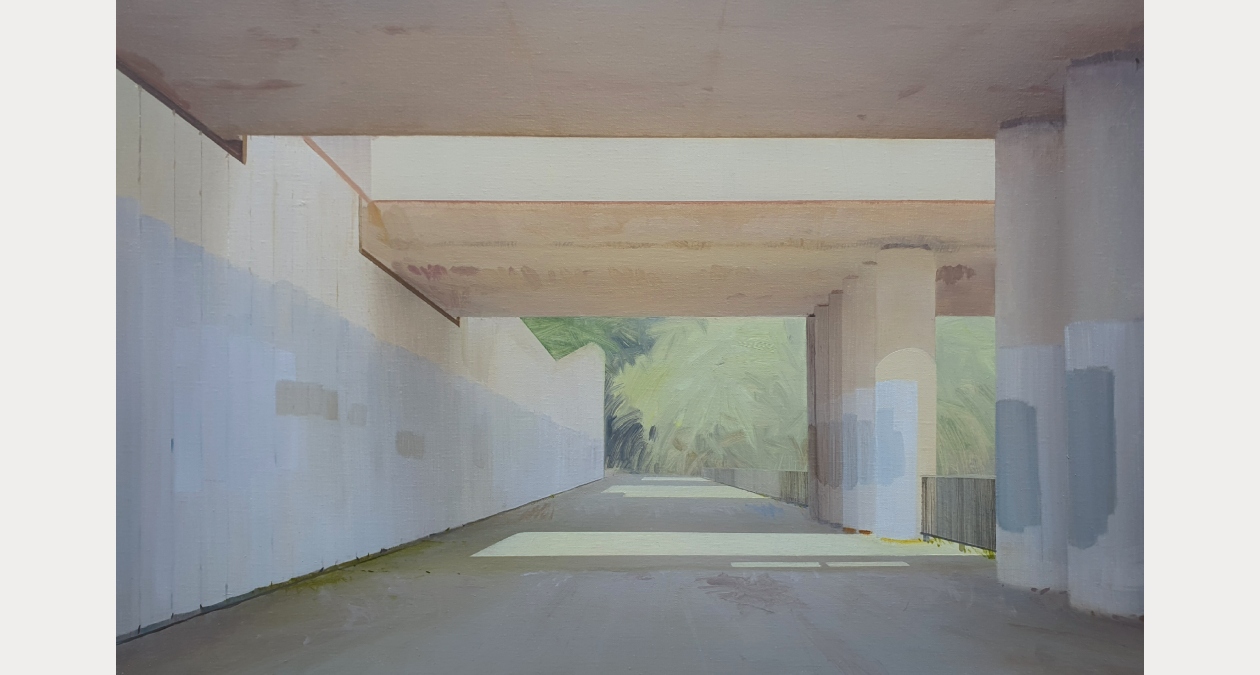An art scene that has been largely male-dominated, even into the 1980s, spurs Rosemarie Trockel to dissent. She persistently formulates counter positions in which she confronts the male artist-genius with feminine roles and subject matter. The various groups of works reflect her standpoint within a decidedly feminine artistic realm and are unstinting in their fundamental critique of the prevailing art system. One of her earliest masterpieces, Malmaschine from 1990, which is shown in the exhibition, takes to the absurd, in virtuoso style, the commonplace about the complaisant handcrafted-mechanical nature of art created by woman’s hand. With its mechanical production of the painterly Gestus, Malmaschine reads well as a parody on the topos of the artist-genius.
Despite her critical stance, Rosemarie Trockel’s works encounter the viewer as lively, highly imaginative conceptual constructs and as vivid and convincing artistic creations. The artist manages to visualise even weighty intellectual cargo in an ironic and humorous way, avoiding dogmatic oppositions or, indeed, polemic. The same strategy is pursued after 1991 in the knitted pictures, which hang on the wall like minimalist sculptures. The artist strips a prop borrowed from the everyday life of women of its traditional function. Like the wool material in the knitted pictures – ideologically burdened as “typically feminine” – electric stove-burners, too, depart from their banal connotations of domesticity or craft.
Rosemarie Trockel does not develop her work in a linear manner, but prefers to take intentionally circuitous artistic paths. With a thoroughly deconstructive method, she places every answer, once found, again in question, or even takes the answer back. The uninitiated observer might therefore find her work heterogeneous and, at first, not easily accessible. And yet a finely woven web of associations is spun around each group of works in which the motifs, once formulated, undergo manifold variations in different media over the years and so decipher themselves.
In her works, traditional and new visual media make astonishing connections for the viewer again and again. This is particularly evident in the ink, charcoal, pencil, collaged or computer drawings, which have an important place in the oeuvre. Drawings accompany each new phase of work both as trial runs and as sketches noting observations and ideas but, as is especially apparent in the current large format works, they also form an independent body of work. Along with the videos, our exhibition therefore puts special emphasis on this medium.
Rosemarie Trockel. An exhibition of the Institute for Foreign Cultural Relations / Institut für Auslandsbeziehungen e.V., Stuttgart. www.ifa.de
in association with the Goethe Institute, Dublin
Rosemarie Trockel
Selection of images from the exhibition
-
Date:
17 Mar, 2011 - 25 Apr, 2011 -
Time:
Monday – Sunday: 11:00 – 17:00 Wednesday Late Opening: 11.00 – 20.00 -
Price:
Free -
Info:
Visitor Safety
We look forward to welcoming you at the RHA.
In line with Covid-19 safety protocols, visitors will be asked to wear a mask.Opening Times
Gallery Hours:
Closed Mon
Tues – Sat: 11 – 17
Sun: 12 – 17
Wed Late Opening: 11 – 19Office Hours:
Mon – Fri: 10 – 17Admission Always Free. Donations Always Welcome.
Getting Here
15 Ely Place, Dublin 2, D02 A213
Tel: +353 (0)1 661 2558
Email: info@rhagallery.ieThe Royal Hibernian Academy is located in the city centre of Dublin, adjacent to the National Gallery of Ireland and National Museum of Ireland and within close proximity to a wide variety of public transport services, such as Dublin Bus (Routes: 39A, 46A and 145) and Dart (Pearse Dart Station).
Access
There is plenty of parking available in the neighbourhood and the RHA is fully wheelchair accessible.
Cafe
Margadh RHA is a speciality food and wine outlet from the people behind Margadh Howth, Mamó Restaurant, Elm Epicurean and Barrow Market. The wine bar serves morning fare, lunch, hampers and gifts.
Mon – Sat: 11 – 17
Tues – Sat: 9 – 15
Sun: 12 – 17



